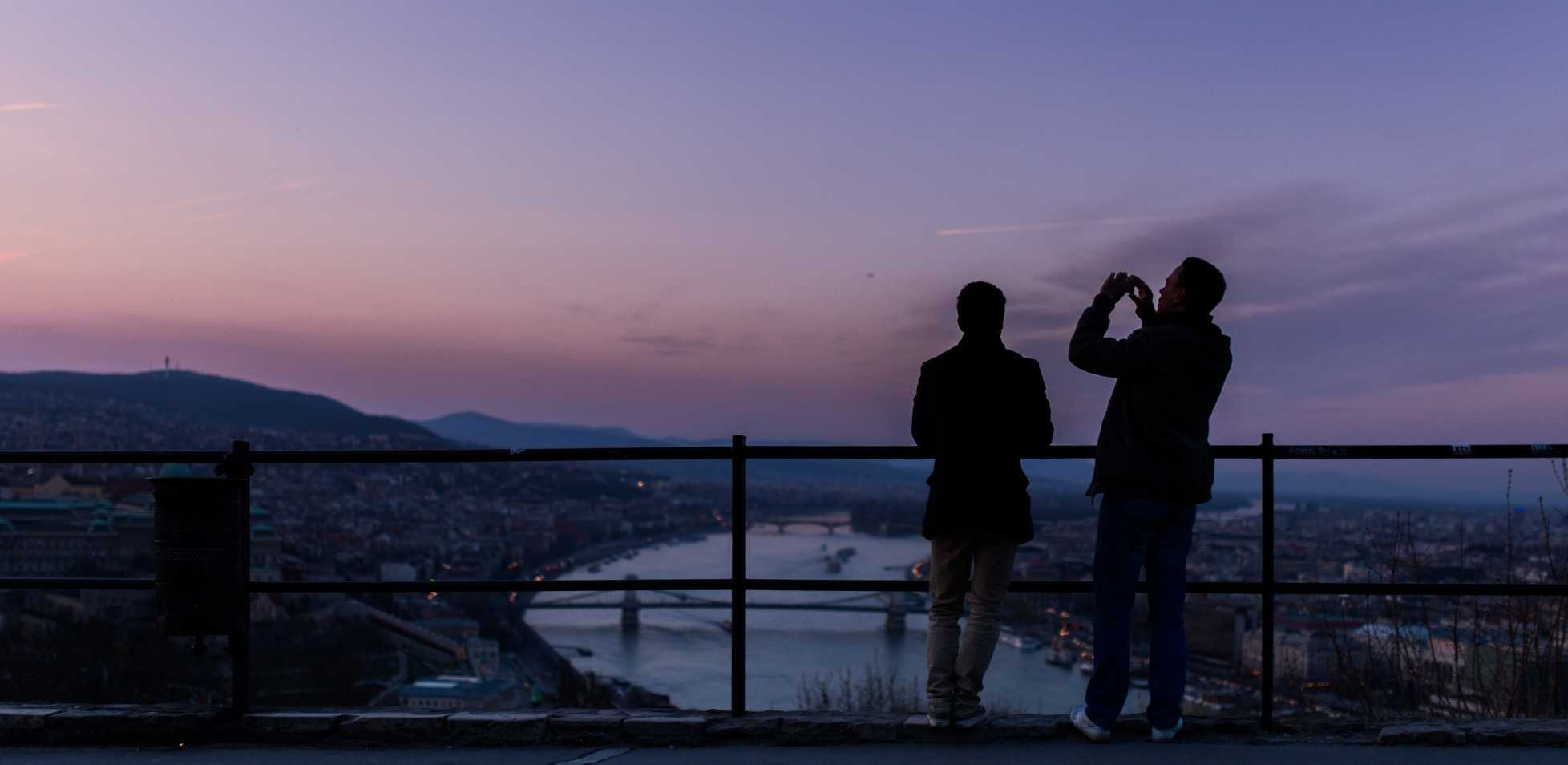Life Begins Where Familiarity Ends
InterNations has over 2.8 million members, each with their own reason for making the often difficult decision to move abroad. We wanted to hear more about what drove them to become an expat and modern-day pioneer.
This past month we asked our members to tell us their pioneering story — from the challenges they faced throughout the process, to how it changed them as a person. Many wonderful and heartwarming stories were shared with us, and our Anniversary Committee faced the difficult task of narrowing it down to the ten below. While each story is unique, many of you had similar doubts before moving abroad and faced the same hardships once you arrived.
“Change is always scary so it’s easy to come up with several very good reasons why not to move.” – Lorena
Before any of our finalists could actually live abroad, they all had to make the decision to move. For almost all of them, there were big reasons not to go: parents with failing health, personal health issues, beloved pets, career uncertainty and lack of funds. Yet each person decided to make the move, whether to create a better life, fulfill a thirst for adventure, or be closer to a partner.
“The biggest reason was that I had no idea how I’d support myself – I hadn’t planned to leave, so I hadn’t saved up.” – Rachel Eve
Once they arrived abroad, other challenges arose. Missing family and friends was common, as were feelings of loneliness and isolation. Not surprisingly, culture shock and language barriers were big problems, and made important tasks like finding a place to live or navigating public transportation difficult. One of our finalists moved quite often, which meant regularly leaving good friends and partners behind. Another faced an incredibly difficult time when a parent passed away shortly after moving abroad, but found that trying to adjust to a new culture helped to divert his mind and made him feel productive.
“The hardest part is no doubt loneliness, especially in the beginning. But I see that as an opportunity.” – Lorena
We were curious to hear why each of them had decided to join InterNations! Many joined to find a community of people that had been through a similar experience, and could offer support and understanding. Some were also interested in meeting people from their home countries, as well as people from around the world who could offer a different perspective. It’s incredibly hard to arrive in a new place and face the unknown, but finding a friendly face at an InterNations event or activity helped many of them.
“We joined InterNations as we began to consider moving from our little olive farm in southern Italy to Kuala Lumpur, Malaysia, knowing that the real-life experiences of others could prepare us for what we were about to undertake.” – Scott
As those of us who have lived abroad know very well, living abroad changes you as a person. In fact, one of our finalists even wrote a book on how he has changed since making the move! Having new opportunities and meeting people from around the world led our respondents to form different perspectives and generally become more open-minded and accepting of different people and lifestyles. It also made them become more self-reliant and helped them to enjoy life more overall!
“Living abroad has definitely made me more patient, understanding and accepting of different cultures and people.” – Patrick

As each of our finalists are experts at living abroad in their own way, we asked them to share their advice with potential pioneers who are considering moving abroad.
Here are some of our favorite tips:
Scott: My advice would be, “Don’t do it!” Don’t do it unless you’re prepared to learn something about yourself, perhaps something you really don’t want to know. But, if you suffer from incurable curiosity, insatiable wanderlust, and a thirst for discomfort, then, by all and any means, harness your pioneering spirit and put it to work in some unfamiliar environment and test your mettle.
Jo: On a practical level, I would suggest accepting any assistance to smooth your transition to your new community. The administrative challenges were unfounded for us, and awareness of the processes and timeline would have eased our initial frustrations.
Jim: My message is that if you really want to do something, you can. The whole world is available to explore, to learn from and experience mind-opening and even life-changing perspectives.
Patrick: Do your research first by reading books, watching videos and possibly visiting the country you’re considering. Also, talk to people that have lived where you’re considering and get advice and suggestions about their routine day to day life, housing, making friends, food, etc. …
Lorena: If you do move, respect your new country’s culture and work hard to become an integral part of your new community. But at the same time try to keep the connection to your country of origin by visiting regularly.
Maulik: Every person must step out of the proverbial ‘comfort zone’. There is so much strength in each one of us and yet there are those imaginary ropes that hold us back. Breaking them is the first step.
Rachel Eve: For those who want to, but are afraid: Examine your resistance. If you want something enough, you can always find a creative solution. But to balance that, I’d say to anyone who thinks it’ll be easy: it won’t be. However, the experience will change you in many ways, and the learning opportunities alone are priceless.
Sam: Have a goal, stay focused, don’t give up, be kind, and believe in yourself.
Michelle: Do the research concerning the country and its regions, the culture, and the laws; weigh the pros and cons (particularly the cons!) BEFORE making the move; and have a back-up in the event of a worst-case scenario!
Jérôme: Do connect with local people and expats on social networks in order to get some information and feedback. It is always valuable to get people to share their experiences and stories.
I was never the adventurous, pioneering sort. Not risk-averse exactly, but not the kind of person who would jump out of an airplane, tease an alligator, or buy penny-stocks. I did, however, ask Jessica — a woman twenty-three years my junior — to marry me (very brave of me, I think), and her “yes” to my proposal set us on a course that would, just a few years later, have us retiring to a little olive farm in southern Italy and then to the Malaysian city of Kuala Lumpur. So, how did our dream of a comfortable, uncomplicated, idyllic life in retirement square with the decisions to quit our corporate jobs in the US, sell our two-story penthouse in Pittsburgh, separate ourselves from family and friends and move to Puglia then Kuala Lumpur?
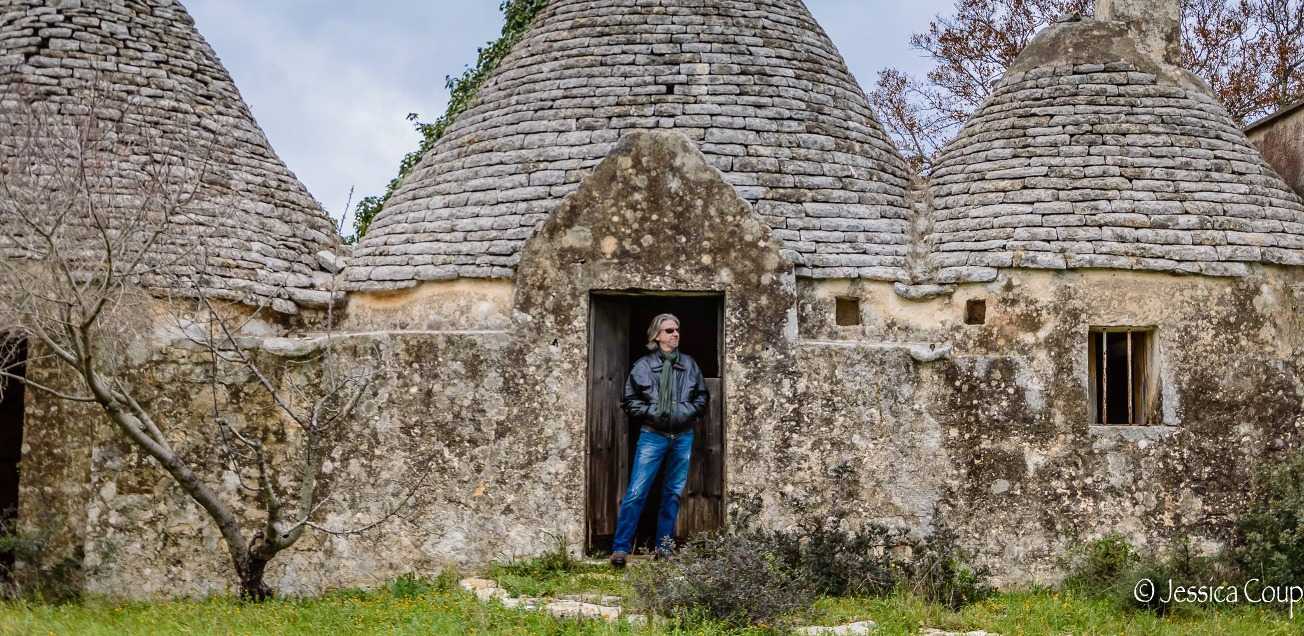
Growing olives in a small, rural village in Puglia put me in a zone from which I could only see comfort with a good pair of binoculars. I had never been a farmer, knew nothing about olives or the making of olive oil, barely spoke Italian and spoke not a word of Pugliese dialect, and was well aware that Jessica and I would be dealing routinely with the vaunted and feared Italian bureaucracy in all of its hydra forms. It turned out, however, that the things that challenged us — the impositions, the inconveniences, the feelings of being a child in an adult world — these were the very things that drew us to the new life we chose. It was a test of ourselves, our adaptability, our tolerance, and our patience. A test that we passed though, and having done so, it was time to graduate.
We could not have moved our lives to Malaysia without having first had the Puglia experience. Living in Italy provided us with a sense of confidence in our ability to overcome cultural, lingual, and social barriers in order to survive. We carried that confidence with us to Kuala Lumpur and found that, despite being part of an ethnic minority (a new experience for us) and living in a non-secular country (another first), we could establish a new and very satisfying life — one that puts us face-to-face with cultures that are so very different and so very rich, with people who have so much wisdom and vision to share, and with so many opportunities for Jessica and me to further push our personal boundaries, each one of these opportunities being an adventure.
I never thought of myself as the adventurous, pioneering sort. But, perhaps, I am in my own anti-bungee-jumping and look-both-ways approach to life. I have counseled others who are considering the “expat life”, and my advice has always been the same: follow your dream. Do not allow fear, stories of others’ failures, or the opinions of those around you to intervene or steer you off course. Find your dream and make it come true, and — if that makes you a pioneer — wear the moniker proudly.
Scott and his wife first moved abroad from the US to Italy, and now reside in Malaysia. They had many reasons to stay home, but decided that the call of adventure was too strong to resist. The culture shock and being so far from loved ones was difficult, but curiosity, openness, and patience has helped them overcome any challenge. Since moving abroad, Scott has truly appreciated seeing how people all over the world seek to achieve health, happiness, sustenance, and love.
“It’s a rubber thing that keeps you warm in bed,” I repeated in a slower and more frustrated tone of voice, hugging myself in the process as if to demonstrate how I used it. I was trying to describe a hot water bottle as I stood in the middle of a large chemist chain in US. The sales assistant beckoned me over to an aisle with thermos mugs, pointed at them, shrugged, and sauntered off. I felt like crying. It was January, -20c outside, and my first weekend in Cincinnati. I had moved from the UK and suspected that the first few wintry months would be more challenging than inspiring. Well, I got that right! My husband had already been here for nine months, and after packing up at home and finishing my role I tootled off after him. We had discussed it with great enthusiasm before we decided to take the plunge for a couple of years. With the support of my husband’s job, paid accommodation whilst in the US, and two paid trips home every year, we felt all other risks were worthwhile.
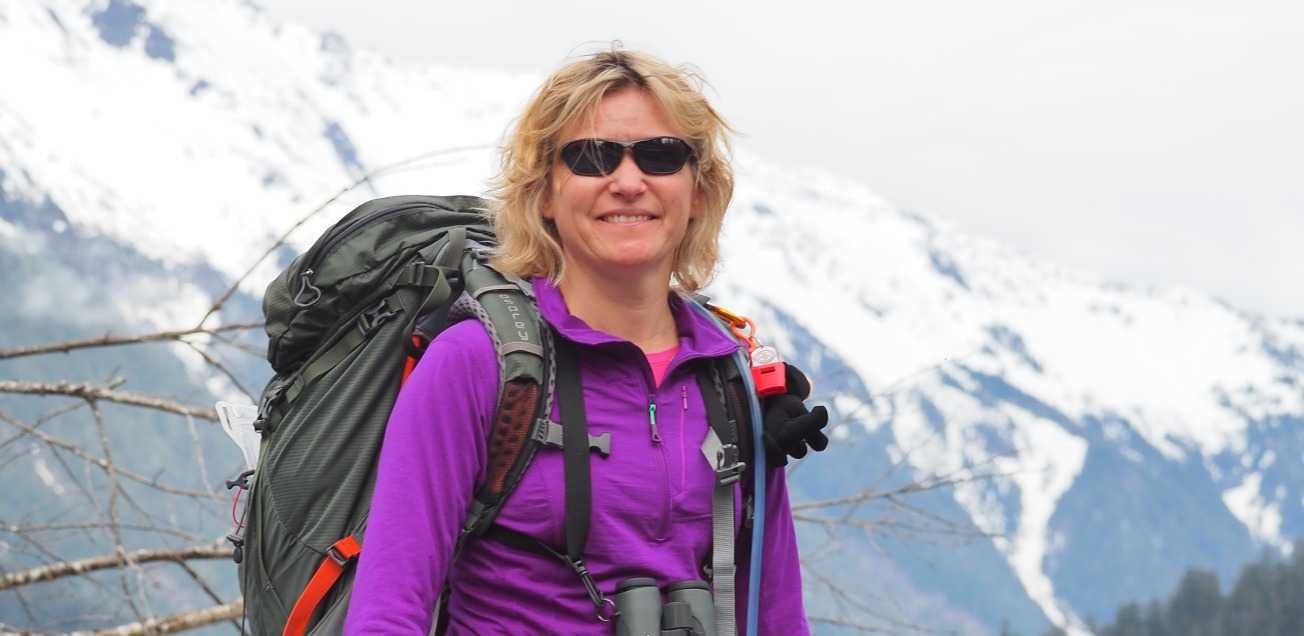
As I left the UK, nodding for the hundredth time saying “yes, of course I will be fine”, I knew that no matter the amount of preparation, the true reality of the change would only become real once I was on another country’s soil.
On reflection, I feel like my move was quite a stark contrast in lifestyles — from the rolling hills of the British countryside to a previously edgy US city; from rambling cottage to tight-knit apartment; from a full-blown vegetable garden to a couple of tomatoes on the balcony; from a 12-hour-a-day job to no job at all and all without the sanity of my girlfriends to spur and chorale me. What a blessing Skype is.
And so, since January, I have had to change, and — even coming from someone who likes change — I have had good days and some more challenging days. At first it was the small stuff: words which no one understood, jokes which didn’t really translate, getting into the wrong side of the car every day, grouching at worn hired furniture, and despairing at the incessant TV adverts! Then there were greater problems such as being a pawn in the system of a country that calls you an “alien”, and not having access to credit as I don’t have a credit score here. As well as having to fill out form after form to justify my presence, and — after 27 years of driving — needing to take a driving test again!
But then came the really good stuff: getting a volunteering role at a nature centre, discovering the amazing US National Parks, seeing my first black bear on a hike, learning to kayak, and, of course, finding my local InterNations Community. Life is gonna be just fine!
Jo is currently an expat in the US, along with her husband. Moving abroad has allowed her to step outside her comfort zone and become more open to meeting new people and finding different opportunities. While she misses good British curry, she cherishes living abroad and is often inspired by all the people she has met in the InterNations Cincinnati Community.
I first learned about YMCA overseas volunteer opportunities when I was a college student working a summer job at Silver Bay YMCA on Lake George, New York. After graduating in 1982, I was soon off to Sri Lanka for a six-week internship with the Colombo YMCA, where I led outdoor recreation and life skills programs for disadvantaged youth.
That was about 35 years ago, and the lure of continued fun, adventure, personal growth, and meaningful work as a humanitarian aid worker has taken me to over 20 developing nations throughout the Asia-Pacific region. Except for six years of graduate studies in Hawaii, where I completed Master’s and Doctoral degrees in Public Health, I have been overseas ever since.
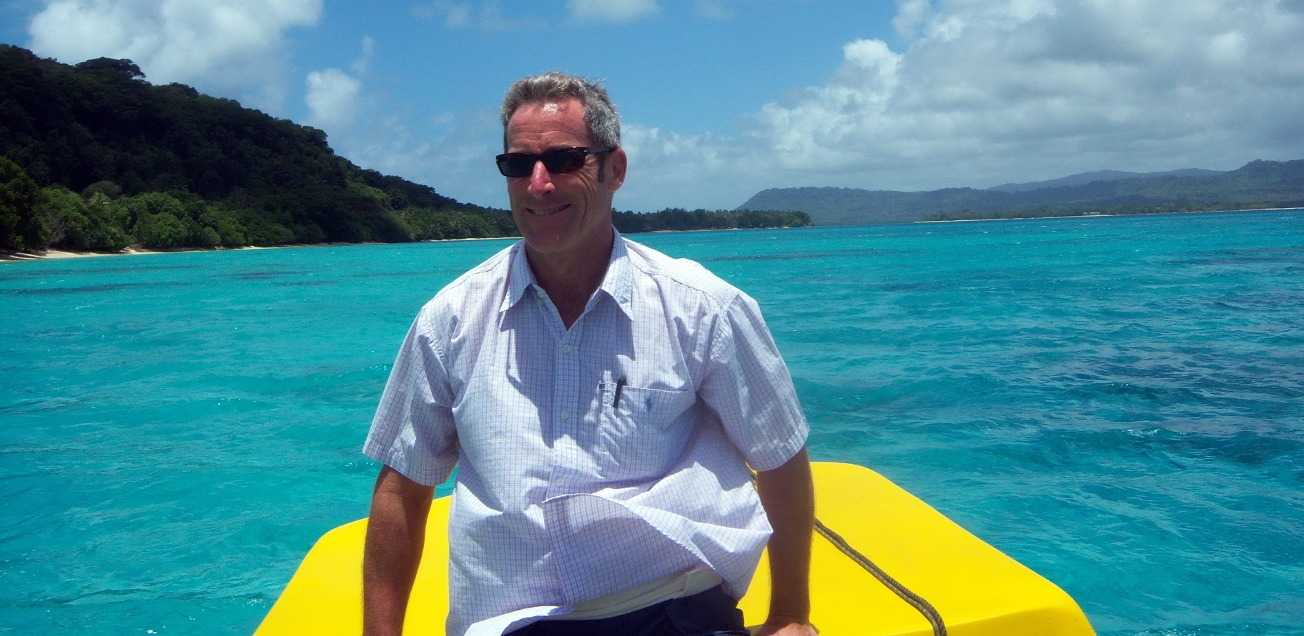
After Sri Lanka, I was hooked on the thrill of international living. For the next eight years, I worked with voluntary organizations in 15 developing countries throughout the Asia-Pacific region. In general, nothing was planned — there was no grand strategy, no burning ambition, no life-long dream or goal to achieve, other than a keen desire to continue living this incredibly fulfilling lifestyle out in the world. I just fell into these amazing experiences largely by chance without any specialized international-development training, arriving as a “clean slate” and approaching each new situation with a genuine openness to learning from my experiences. It was learning by doing and naturally practicing what I later read about when I returned to school, including the importance of sitting down with the local people, observing, listening, and learning, as well as sharing whatever I had to offer.
Although clearly an outsider, I caught some glimpses of local situations and perspectives. During this time, I picked up working levels of Samoan, Indonesian, and Thai languages. Later on, I learned the basics of the Khmer language while working with UNICEF in Cambodia and also became proficient in Vietnamese on a major Women and Child Health project in Vietnam, which further enhanced my understanding about some aspects of the developing world, about people, and about life — an understanding that can only be gained by living these experiences.
I have always preferred the far richer experience of living locally, feeling part of a place with a clear purpose rather than simply visiting as a tourist. My early overseas experiences left me eager for more and clearly demonstrate how anyone can experience genuine fulfillment and self-discovery through different, freer ways of living — ones that are not narrowly focused on blind ambition, resume building, or saving the world, but more on following your heart, discovering your life’s purpose, moving with the natural flow of your energy as it connects with the universal energy. By keeping it simple, easy, and not forced, this may involve living “outside the box”, experimenting with lifestyles learned from other cultures, and being open to other priorities in life.
I currently live in a peaceful seaside setting in southern Thailand.
Jim is an experienced expat, having lived and worked in over 20 nations over the past 35 years, and has also traveled to over 60 countries in Asia, Africa, Europe, North and South America and the South Pacific. Regularly having to say goodbye to new friends and partners is one of the biggest challenges he has faced, but online-networking has proved to be a great help when it comes to staying in touch. He encourages everyone to have at least one overseas experience, and to keep a journal and take photos early while it is all fresh, to remember the amazing and funny things which may happen to you.
I relocated to Shanghai from Los Angeles on September 25, 2016. I came to Shanghai to work at Oriental DreamWorks which is the animation studio responsible for producing the Mandarin/Chinese version of Kung Fu Panda 3. I have worked in entertainment, specifically animation, for the past 25 years.
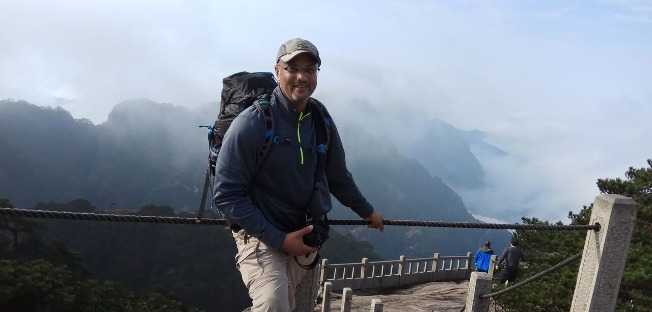
There are a few reasons I decided to take a leap of faith and relocate to China. Firstly, because I was out hiking with a friend who proposed the idea of working here. Secondly, I had never been to mainland China or Asia. But the most important reason is because I had emergency brain surgery seven years ago on May 13, 2010. After my surgery, radiation treatments, and journey through my recovery, I made the decision to “Live My Life Out Loud” and to “Live with No Regrets” with regards to seizing opportunities for adventure as well as personal and professional development.
Since my surgery, I have challenged myself with skydiving, hiking to the floor of the Grand Canyon, climbing to the summit of Mt. Whitney — the tallest mountain in the lower 48 US states (14,508 feet) —and traveling extensively. And now, I’m here in Shanghai, China continuing the adventure and Living my Life Out Loud and with No Regrets.
Patrick moved abroad after being offered the opportunity to work overseas in a field he truly loves, making animated films. While moving away from family and friends and overcoming culture shock was a challenge, he has come to truly embrace the lifestyle and people in his new home. He credits his time abroad with making him more patient and understanding and encourages others to take the same leap as he did!
By the age of 15 I knew I was going to lead my life as an expat. My home country wasn’t exactly the land of opportunity I needed it to be, and I couldn’t see it fueling my grand ambitions. I wasn’t sure where and how the story would unfold, but I knew one thing — I was determined to make my own path.
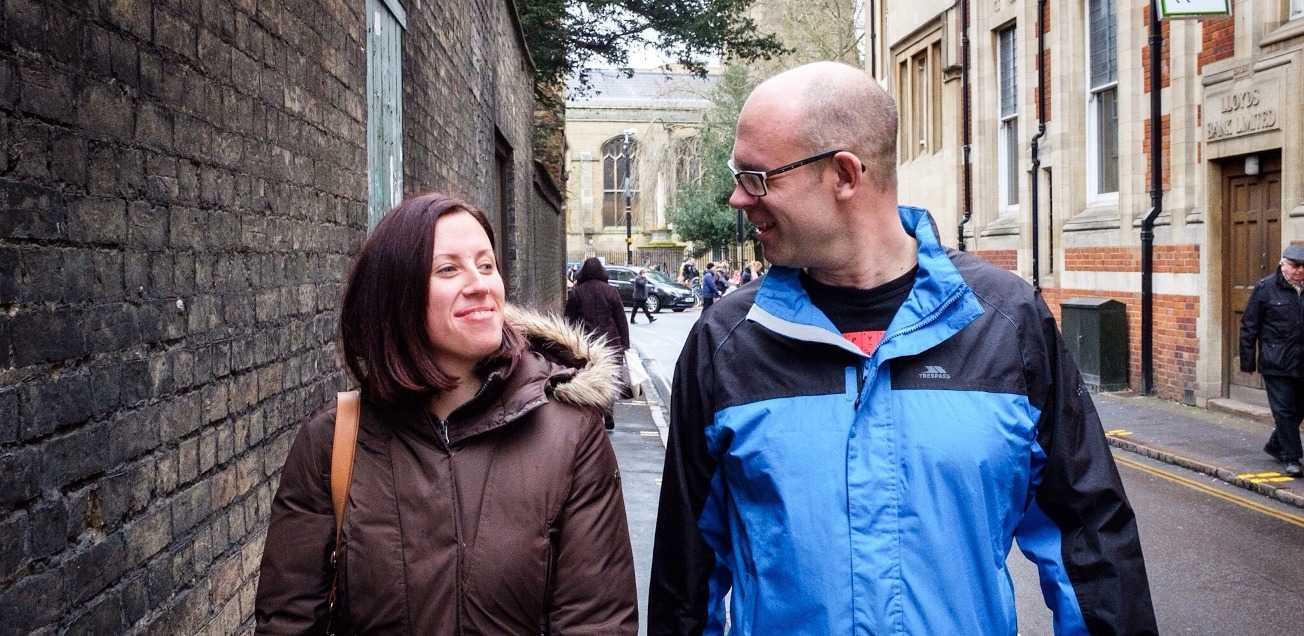
So, I moved for the first time: I got a scholarship at a foreign university to study a subject I was passionate about. I was excited and petrified at the same time, but I had that energy deep within me and I was determined to make it. During the first lecture in a packed auditorium, the professor told us to look at the person sitting on our left and the person sitting on our right: “only one of you is going to make it,” he said. The odds were poor for everybody — even worse for foreigners. But I made it.
I made friends, I lost friends. I learned a new language and how to survive in a new country. I read thousands of pages. I met people from around the world. It was tough but worth it. When the time came to get a job and grow up, I declined a job offer most of my peers would have considered a dream job. Life circumstances wanted me to move on.
So, I moved for the second time. Brand new country, brand new culture, and a language I couldn’t speak or understand. How hard can it be, I thought — I’ll just learn the language, find a job and build a life. I was determined to make it. After all, I’d already done it once.
I took language classes and looked for a job. I was living in one of the most prosperous regions in Europe which offered a lot, just not to me. After applying for a huge number of positions, I decided to give up. I never made it to the interview. Nobody seemed to care about my stellar academic record and ability to adapt. I was devastated, I cried a lot.
So, I moved for the third time. Brand new country, brand new culture, but this time I spoke the language — thank goodness. The new country was good to me. I found a great job within a month and quickly progressed in my career. I made money and was able to create the lifestyle I wanted. There were some challenges along the way, but it all seemed easy compared to country #3.
No matter where you move or what you end up doing, one thing is certain: as an expat you will face adversity. A lot of it. Make sure you do your part: read, learn, understand, and adapt. Make friends and enjoy yourself. Put in the work and reap the rewards. And if it doesn’t work out, move again.
Lorena has known since a young age that she wanted to be an expat, as there was so much going on in the world that she didn’t want to miss out on. For those dealing with setbacks and loneliness while abroad, her recommendation is to set yourself challenges — such as a career change, or running a 5k, so you can improve and grow. She can’t imagine never having lived abroad, and encourages everyone to get out there and explore!
In many ways, a pioneer is a rebel: he undertakes a metaphoric voyage against norms, against a familiar place, and sometimes against a “truth” – mostly untold or camouflaged. Mustering up the courage to punch the computer keys and tell my truth is an emotional strain. But I’ll attempt it.
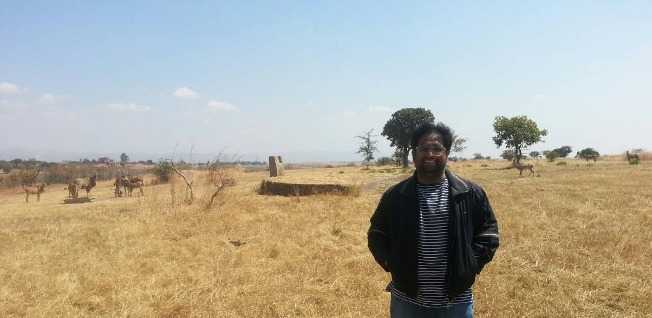
In a nutshell, I left my home and my country to become an expat at a time when I knew that my mother was going to die. She had been diagnosed with multiple-organ cancer and did not have much time. In my head, I knew that I couldn’t take up the opportunity and I had to be with her.
But the stars had other plans. My mother, a lady with a never-say-die attitude, tactically coerced me into accepting the offer. She simply asked, “son, will you just wait upon me to watch me depart?” The decision was made.
As an expat in my new home abroad, each day would pass with thoughts of my mother: Was that the last time I would see her, when she came to wave me off at the airport? It was unnerving.
Professional demands were up too. Having never started my work day before 10 am in my home country, here I began my day at around 8am. New people and a new work culture needed me to fall in line.
I thought aloofness and silence would best help to hide all my emotions and fears. But being into a people-facing job, it was about balance – making no one uncomfortable, cheerfully doing work in teams, and yet keeping calm about the truth that was continually chipping off portions of my soul.
Finally, the time arrived — unannounced. I managed to reach home just in time but only see my mother in a comatose state before she entered into eternal sleep.
After that, I could have stayed back home and not returned to my country of work. I could have wallowed in sorrow. But I went back to resume my professional duties. Why? Because this was a rebellion against my wishes. Me becoming an expat made my mother happy. A mother who would see her son doing well, with his wife, a good job, a home of his own and a car. What did she gain from it? Besides a smile and a satisfaction, nothing. She was preparing to leave behind everything, preparing for her voyage beyond life. I couldn’t let her down.
In that sense, if, as an expat, I am to be called a pioneer, then I am a rebel first. So is every expat — a pioneer with a spirit of rebellion against his truths and his wishes who forays into the unknown for the sake of his loved ones.
Maulik decided to pursue a life abroad during a very emotional time in his life, largely due to the encouragement of his mother. He is a firm believer that sometimes things in life may not happen as you imagined, but that they have still happened for a reason. Making the move abroad has given him a sense of victory and the ability to grow both professionally and personally.
When I left a management position at a global company and sold my condo in San Francisco to move to Peru, people said a lot of things. Many said I was courageous. Several said they wished they could do the same. One accused me of going through a midlife crisis — if that’s what it was, I wish it had happened a lot earlier.
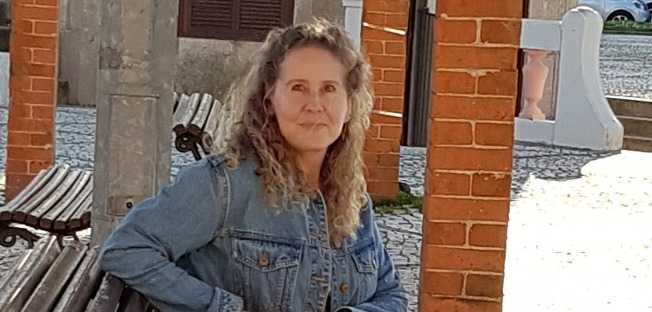
I never considered myself courageous. I was unhappy, not living the life I was meant to be living, and staying stuck was no longer an option. I had to make some major life changes.
I’d lived abroad before, four times, during college and shortly afterward. Twice in countries where English was barely spoken — Russia and Austria in the late 1980s. I’d also traveled extensively throughout several parts of the world. Peru was a great starting point for several reasons, so I found a place to stay for the first two months and knew I’d figure out the rest when I got there.
As it turns out, I stayed in Peru for four months and then moved to a small village in the Ecuadorean Andes, where I put a lot of time and effort into getting permanent residency. I learned Spanish. I bought a little adobe house and had furniture made. I planned to stay for a while.
Until it was time to go. Which happened sooner than I’d expected, because of some safety and security issues in the village and the realization that I needed some things in my life that rural Ecuador couldn’t offer. So, I did some research and decided to move to Portugal.
I spent a little time exploring different parts of the country, and decided I wanted to be in the north. I got temporary residency, found a terrific Portuguese teacher, and bought a little apartment by the ocean in a smallish town in a wonderful location. The apartment needed a lot of work, and I had to hire a contractor and deal with local shops and utilities and technicians. I bought a car and got my Portuguese driving license. I registered in the healthcare, social security and tax systems. Almost entirely in Portuguese.
Almost three years — and three countries — after I left the US, I can imagine what my journey must look like from an outside perspective — possibly slightly nuts. And I might be moving countries again: while all my original reasons for coming here are still valid, it’s been a harder cultural adjustment than I’d expected, and I’d like to do a little course-correcting.
But every step of the way has been amazing, educational, and right. I’ve learned and grown, met wonderful people, made new friends, and seen incredible places. Yeah, there’ve been some challenging, scary, and downright crappy parts, but I can’t even imagine what my life would be like now if I hadn’t taken the chance. Looking back on it all — and forward on what’s to come — I’ll take courageous, and own it.
Rachel left her stable life in San Francisco to move first to South American and then to Porto, Portugal. Starting over in a place where many people have lived their whole life has been a challenge, but she has met many wonderful people along the way. Living abroad has reminded her that we all have choices and there are many different ways to live a happy life.
Originally from Iraq, I grew up in Kuwait where I started working with my grandfather selling fish at the age of 9; I never knew what vacation or time off was, and I lived in a one-bedroom apartment with nine people. My dad was a driver and my mom was cleaning lady; after school, I used to go work with my mother so that people would give us food and hand-me-down clothes. I lived in a very tough environment where I experienced poverty, hunger, pain, and disappointment. Sleeping on the floor was not the most comfortable thing, but having done it for 18 years, I never knew what it felt like to sleep on a bed.
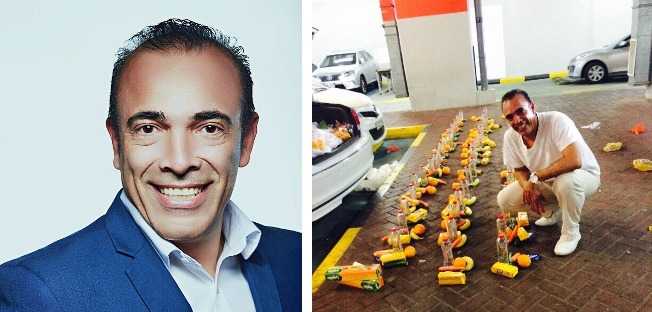
I left Kuwait in 1980 with failing grades from high school. I begged my dad to believe in me even when I was a failure in my family’s eyes. Despite struggling to take care of seven kids, my dad finally agreed to give me one more chance to change my life. He had to borrow money just to buy me an airplane ticket to the USA, so I could follow my dream. Convincing him was tough, but I promised him that he would not regret his decision.
I arrived with $200 and a dream. Things were tough: I worked three jobs, slept at the university engineering lab, at my friends’ apartment, or in my car, and often had to eat at homeless shelters. All of that was acceptable because I had the determination, a dream, and desire to be someone.
Through believing in myself, I completed my engineering degree as well as a master’s. I bought houses for both my parents and have sent them a monthly salary for the past 30 years, just to thank them for believing in me. My struggles have given me the opportunity to speak publicly in many high schools and private companies, sharing what it takes to be successful, how to follow your dream, and the importance of believing in yourself. Today I am the Vice President and partner at MENA lighting LLC.
Sam grew up in the Middle East and from a young age always knew he wanted to go abroad and experience the world. He credits his positive attitude and the desire to make his parents proud for helping him to overcome a wide range of challenges both before and after moving abroad. Living abroad has opened his eyes and driven him to work on making the world a better place to live for everyone. He currently lives in Dubai, where he is a part of the InterNations community.
If someone had said to me four years ago that I’d be moving from Canada to a small town in France, I’d have laughed hysterically and thought them mad. Despite what I was experiencing at the time, it’s no exaggeration to declare that never in a million years would I have dreamt of moving here, despite what I was experiencing at the time.
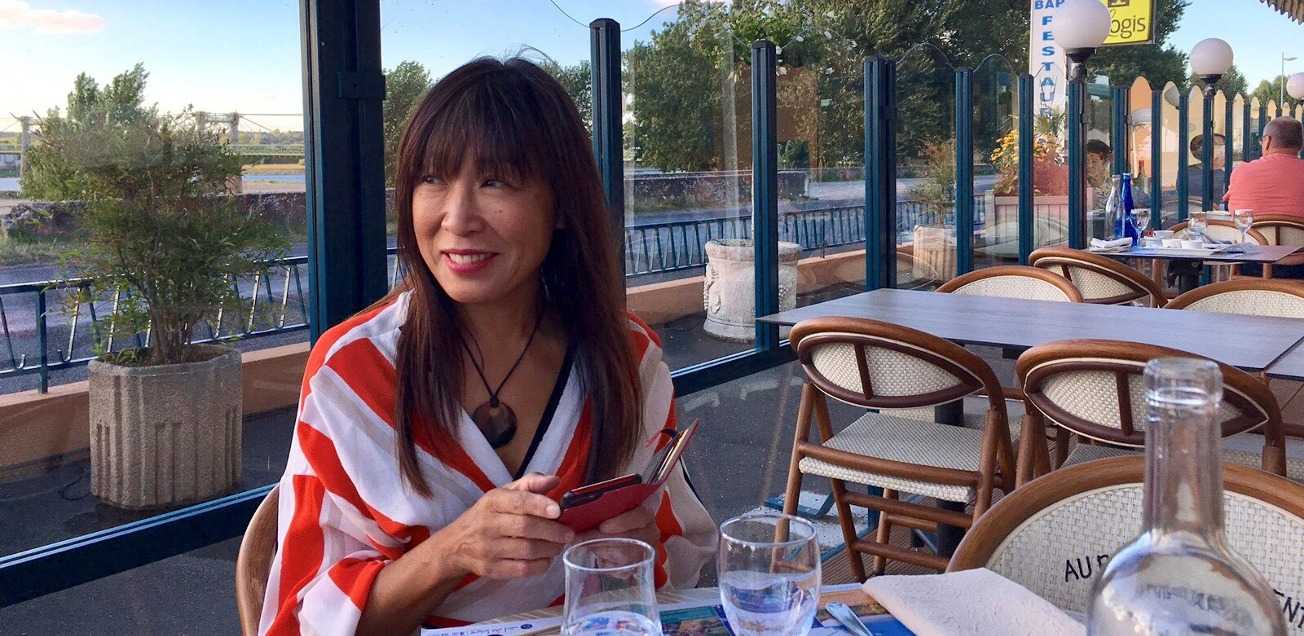
What those closest to me didn’t realise then was the real depth of my struggle with… call it the start of the classic “mid-life crisis” or self-discovery (the epic Elizabeth-Gilbert type). Suffice to say, I’d come to a point where, after endless false starts and failed attempts, I felt the universe was trying to tell me something, only I didn’t know what; I became distressed, developing chronic back pain and high blood pressure.
The turning point came when my (now ex-) boyfriend began talking about moving to France, and I thought, “Why not?”. Not only was I undaunted by such a huge move (due to the numerous ones I’d undergone with my family as a child), but this drastic action seemed to me to be something I couldn’t NOT do.
As word spread about my decision, two camps formed amongst friends and family: the first one held admirers calling me brave and, in the other, skeptics resided. The latter felt that I was blithely making a life-altering mistake by moving to a foreign country not knowing anyone with language skills that were equivalent to a rusty high-school level.
To those who admired me, I chafed at their sentiment and felt like a fraud for being labelled “brave” because, truthfully, I felt that my choice of direction at this juncture were as though the hands of fate were ushering me that way – and none too gently. Nor, contrary to the other side, was it a rash move on my part. Being a somewhat staunch planner, I had a plan and a back-up plan, based on a worst-case outcome.
With my decision made, it was time to set things in motion. On my scouting trip in April 2015, I was fortunate to meet Marie Lyne, co-owner of the B&B where I stayed. Having driven solo to their door never having been in France before (save for three days in Paris), a GPS as my guide, with a handful of prearranged appointments, and speaking only basic French, Marie Lyne thought I was insane. But, again, fate played a huge role here because, not only are we great friends today, she was the one who found the quaint house I currently live in.
Throughout this ongoing journey, I continue to discover many things, not least of which how resilient I truly am (still not to be confused with being brave). For, having come out the other side of my past struggle, I now have a renewed sense of happiness, confident that things will continue to lead me in this new-found direction.
For Michelle, moving abroad, while not planned, was a relatively easy choice as she already spoke the language and had the necessary passport. Still, that didn’t make the initial adjustment period any easier, as knowing the basics of a language and speaking it fluently enough to make close friends is very different! But this pushed her out of her comfort zone and made her a more self-reliant person. Overall, relocating to France has led to her enjoying life much more!
After studying in France, I have always wanted to live in a foreign country for at least one year; I have always wanted to experience daily life in English. After several short experiences abroad, I was ready to go for it in Canada — I had a two-year work and travel visa in my hand. I didn’t know that I was about to meet my lovely Czech girlfriend in Barcelona during a short trip in July 2015, a very special person who made me rethink my plans and head to Brno in the Czech Republic.
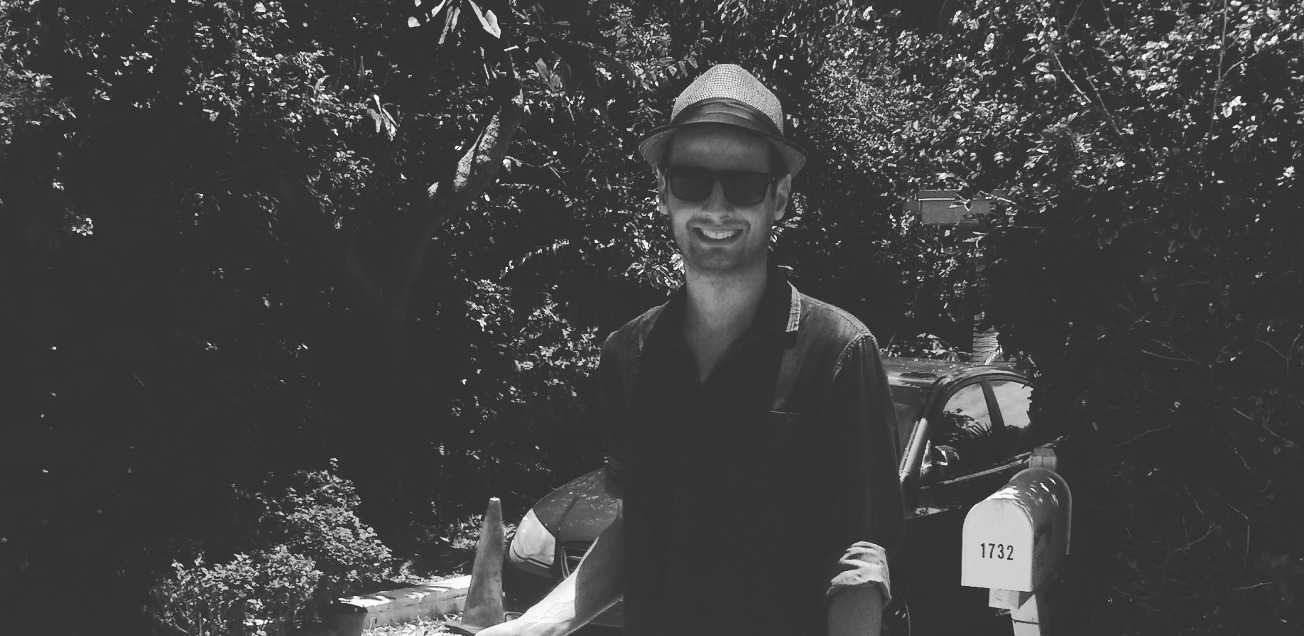
I did not know Brno in 2015. I barely knew Prague. I’d been to Brno twice and realized that it was a town where I could see myself living. So, I moved there on 2 January, 2016. I am sure that my family thought I was crazy. Some friends imagined I was moving to a “developing country” located in eastern Europe.
I encountered many challenges at the beginning. Finding an affordable studio was complicated: with my girlfriend’s help, I contacted many landlords who did not reply or were scared of renting their flat to a foreigner, so I had to follow the advice of my local colleagues and share a flat with a girl I did not know — I’d only known my girlfriend for a few months, so I did not want to live with her straight away. Opening up a bank account was not easy either. Even if the staff spoke some English, they did not know whether I had to register with the Tax Office to be allowed to open a bank account, so I went there on my own to try to figure it out. I found helpful staff there, but no one who could speak English. With the help of my company’s HR Team, I found out a few weeks later that no registration was needed after all.
I have never regretted my choice of moving to Brno. It forced me to step out of my comfort zone. I have met so many interesting people that I would have never met if I stayed in France. I have been discovering a part of Europe that I had never been to before — I wasn’t even planning to visit! This experience is forcing me to learn a Slavic language with a different logic, so I can better understand the culture. Learning Czech is also challenging my brain and memory.
Starting a new life from scratch has not been easy at all. I had to put aside some personal expectations. But it is a great personal journey and invaluable experience. It has forced me to change. It has helped me to be a more open-minded person. Today, I truly experience a real international life.
Jérôme is an expat currently living and working in the Czech Republic. After almost becoming an expat in Canada, he decided to move to Brno where he could join his girlfriend. Living abroad has provided him the opportunity to learn Czech and given him a different outlook on life. His favorite part of expat life is getting to experience day to day life in a new country, and meeting people he wouldn’t have had the chance to back home.
Advertisement
About Franziska Mutsch
Article topics
Related articles
The Highs & Lows of Being an LGBTQ+ Expat
We asked our Instagram followers about their experience as LGBTQ+ expats. From changing societies to safe havens and having to hide their true self, many people shared what life abroad is like in their country. Here’s what they had to say!
These 7 Countries Offer the Best Environment & Climate
Discover where you should go if you’re looking for a great climate and environment according to the 2024 Expat Insider survey.
All the Time It Takes — Building Friendships as an Expat
Making new friends and maintaining friendships is one of the biggest challenges for expats. It can be just as difficult to build a social network as it is to deal with all aspects of life abroad. InterNations member Maggie recounts how she tried to find friends abroad and didn’t lose hope.
Constant Goodbyes
As an expat I’ve had to say goodbye to family, friends, and colleagues on more than one occasion. This is not uncommon in any person’s life. However, since becoming an expat the frequency of saying goodbye has certainly increased. The ease of doing so has not.
Why I Shouldn’t Have Moved Abroad
Moving abroad sometimes feels like a crazy decision. It can seem like there’s an endless list of reasons not to move— job uncertainty, visa challenges, or just being away from family. Here are some of the reasons our team members shouldn’t have packed their cases, and why they’re glad they did.


